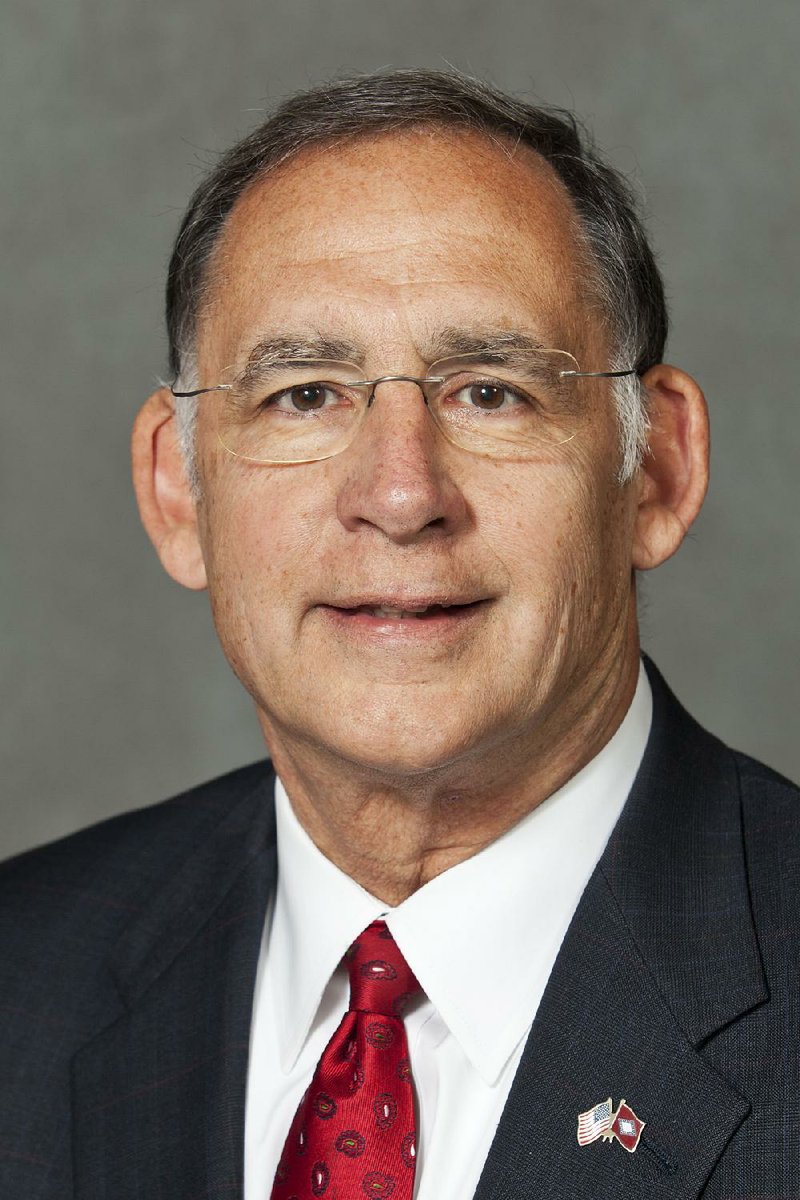WASHINGTON -- U.S. Sen. John Boozman, who underwent emergency heart surgery to fix a torn aorta in 2014, will have a follow-up surgery Tuesday in northern Virginia.
The Republican from Rogers said he'll likely spend three to five days in the hospital, followed by "a couple of weeks of really taking it easy."
Boozman, 66, originally planned to have the surgery early this month, at the start of the August recess, but delayed the operation after Senate leaders asked lawmakers to stay an extra week.
The surgery, which Boozman referred to as a "tweak," is scheduled for three weeks before the Senate reconvenes.
"It's a good time to do it, and then I should be blowing and going. We're going to have a really busy September, I believe, when we come back," he said.
Doctors had been encouraging Boozman for the past 18 months or so to get the second surgery, he said.
This time, it isn't an emergency, he added.
The aorta is the body's main artery. Roughly a foot long and more than an inch in diameter, it helps deliver oxygenated blood throughout the body.
When there is an aortic dissection -- a tear in the innermost layer of the artery -- it can cause the middle and outer layers to separate and tear, potentially rupturing the aorta itself.
A tear in the ascending aorta, which pumps blood to the brain and arm, is "a surgical emergency" and a "life-threatening problem" that must be dealt with immediately, according to Dr. Mohammed Moursi, professor and chief of vascular and endovascular surgery at the University of Arkansas for Medical Sciences.
"If an aorta ruptures, most of the time that results in the demise of the patient," he said.
Roughly 3 out of every 100,000 people have aortic dissection in any given year, he said.
Moursi, who isn't treating Boozman, said patients with an ascending dissection are typically placed on a heart and lung bypass machine so that the doctors can remove the portion of the aorta that is torn, he said.
It is replaced with man-made material.
"There's a woven fabric, usually dacron, and you replace the dissected aorta with this piece of prosthetic material that's a tube and you sew it in place," he said.
Boozman was rushed to Mercy Hospital in Northwest Arkansas in April 2014 after experiencing excruciating arm and chest pain. The doctors discovered a tear in Boozman's ascending aorta and rushed him into surgery, operating on him for nine hours.
He wasn't able to return to the Senate for roughly six weeks. The lawmaker says the physicians saved his life that day.
"They went in and fixed it. My local hospital patched me together. They just did a tremendous job," he said.
Boozman said roughly 30 percent of the patients who undergo aortic dissection surgeries end up needing a follow-up operation.
Moursi, while not commenting on Boozman's particular case, said there are various reasons why a second operation is necessary.
Sometimes, there are problems with the prosthetic material. In other instances, there are portions of the aorta that are weak, dissected or enlarged, he said.
Boozman said Tuesday's surgery will be performed by an aorta-dissection specialist.
"He does it all day every day," the senator said.
The defective aorta appears to be congenital and otherwise, Boozman is in good health, he said.
"I really don't have any other problems. My heart is fine. My vascular system is great," he said.
Asked whether his own medical challenges had affected his views on the health care debate, Boozman said, "When you're in a situation where you yourself get sick, then you look at the system totally different."
Expressing gratitude for the people at Mercy Hospital, Boozman said his own medical emergency "illustrates the importance of community hospitals. If I'd had to travel an extended period [to reach a hospital] I probably wouldn't have made it, so it's important that we have really good, qualified people in our communities spread out throughout Arkansas."
When Congress returns, Boozman said, it should work to stabilize the nation's health care system "for the next year or two as we figure out a bigger solution."
Letting it implode is not an acceptable option, he added.
Metro on 08/10/2017

